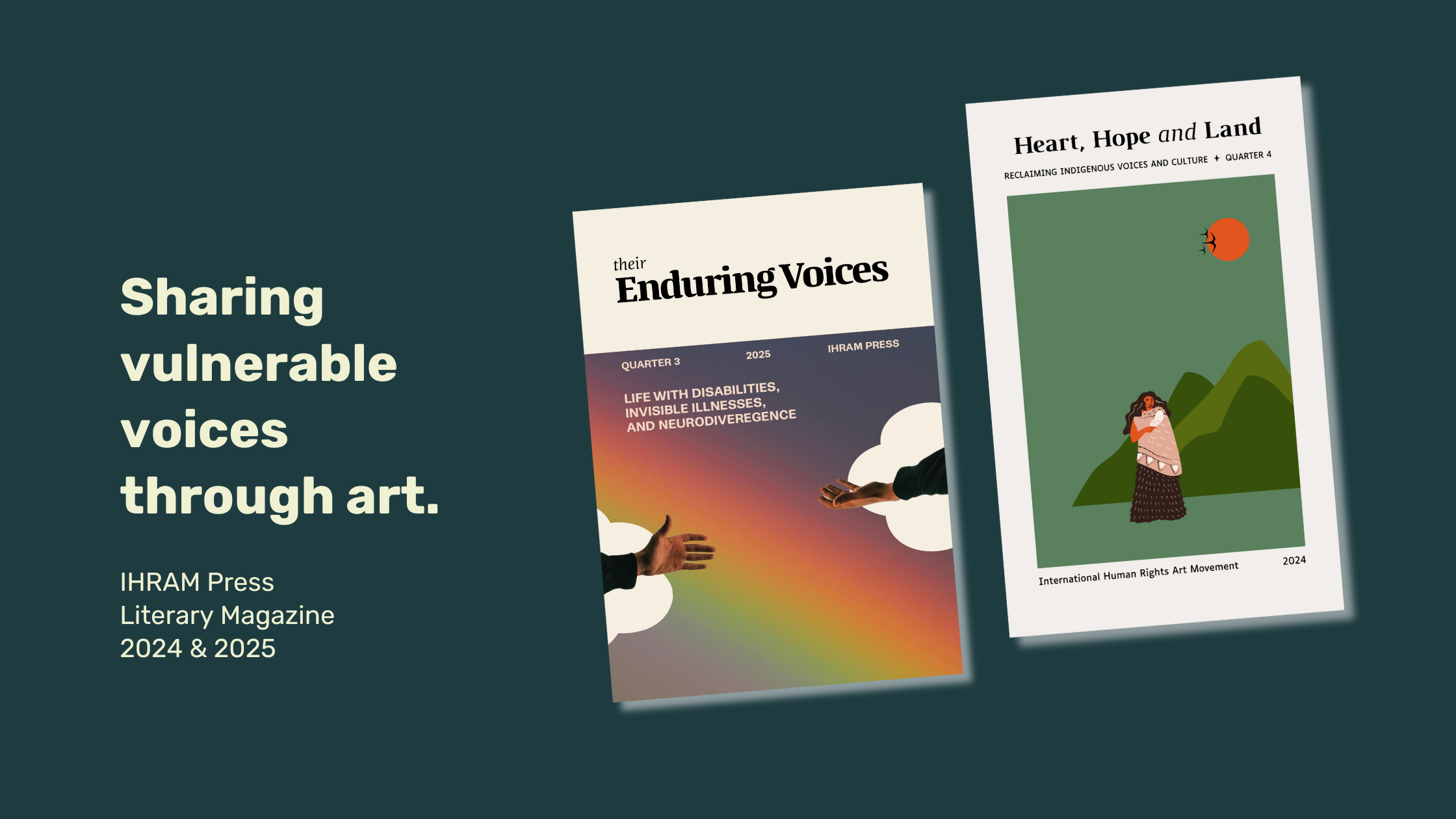Reclaiming our voice through art.
The relationship between Indigenous culture and life with disabilities, illnesses, and neurodivergence. Fen Hsu speaks about Enduring Voices, IHRAM Press’s latest Literary Magazine.
What inspired you to speak-up about Indigenous culture and the themes within Enduring Voices literary magazine?
“As I was writing this, I had occasion to visit the Salish Lodge. The Salish Lodge & Spa is perched over Snoqualmie Falls, a magnificent rushing waterfall sacred to the Indigenous peoples of the Pacific Northwest, known as the Snoqualmie Indian Tribe. The Snoqualmie Tribe now own the iconic Salish Lodge. Indigenous culture and tribal presence now enhances the Salish Lodge experience.
How does your artwork, “Wisdom of the Rooted,” fit with Indigenous culture?
“As I enjoyed some refreshing sweetgrass blackberry sipper, graciously offered at the Salish Lodge gift store, I could not help but recollect the phrase, ‘Kill the Indian, Save the Man.’ This unfortunate phrase is attributed to the founder of the Carlisle Indian School, a residential boarding school established in Pennsylvania in 1879. The history of Indigenous residential boarding schools in the United States and Canada is well documented.
The residential schools’ purpose to ‘Kill the Indian, Save the Man’ was complete assimilation and eradication of Indigenous culture. But why was it necessary to separate children from parents, and prohibit Indigenous language and the practice of Indigenous cultural traditions?”
“But why was it necessary to separate children from parents, and prohibit Indigenous language and the practice of Indigenous cultural traditions?”
How do you connect with these sensitive themes?
“Sometimes it is helpful to read bodice-ripper novels. My favorite, “Wuthering Heights”, written in England in 1847, provides cultural contrast. The palpitating romance of Catherine and Heathcliff is centrally about property and inheritance that excluded women in that period of history, dooming Catherine to marry for money not for love. This pop culture window contrasts the culture of the European settlers with the Indigenous tribes who were unified powerful nations often with matrilineal inheritance traditions. Indigenous philosophical systems were a substantial threat to a Euro-American vision of progress that would require despoliation of the environment, money as centralized control of human enterprise, and negation of the divine in humans and nature.”
Do you have any final notes about our present and future as creative humans?
“Now in 2025, 6 generations of the Indigenous peoples later, I was unbelievably standing in the luxurious Salish Lodge sipping a refreshing and medicinal tonic offered gratis in the generous spirit of potlatch. It was truly miraculous that Jason Vickers, founder of Natoncks Metsu "Feeding my Cousins", was there conversing with me about foraging, as glad tidings that the culture, health and nutritional practices of the Indigenous peoples are still alive to inform us. Chance face to face meetings with practitioners of Indigenous culture give me hope that stigma and isolation of the disabled are artifacts of a competitive Western technocratic culture, and not an inevitable or sovereign state of being.”
References and further reading
@nipmucjay on Instagram for Jason Vickers, Natoncks Metsu “Feeding my Cousins.”
@sugarcanefilm, 2025 Oscar best documentary nominee about Indigenous residential schools.
@salishlodgespa, Salish Lodge & Spa.
Check out Fen Hsu & her work
View her visual art on Instagram.
Read more on her website.
Follow IHRAM Press’s publishing journey online
Join our movement in supporting international underrepresented voices today. Read more.


